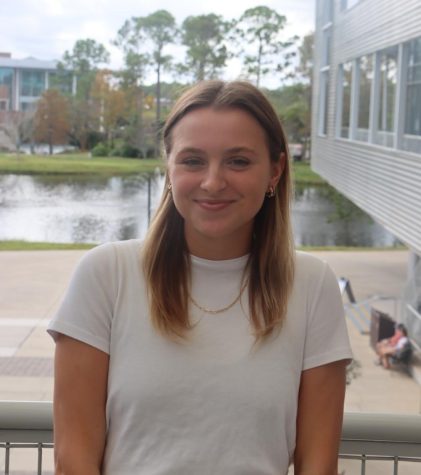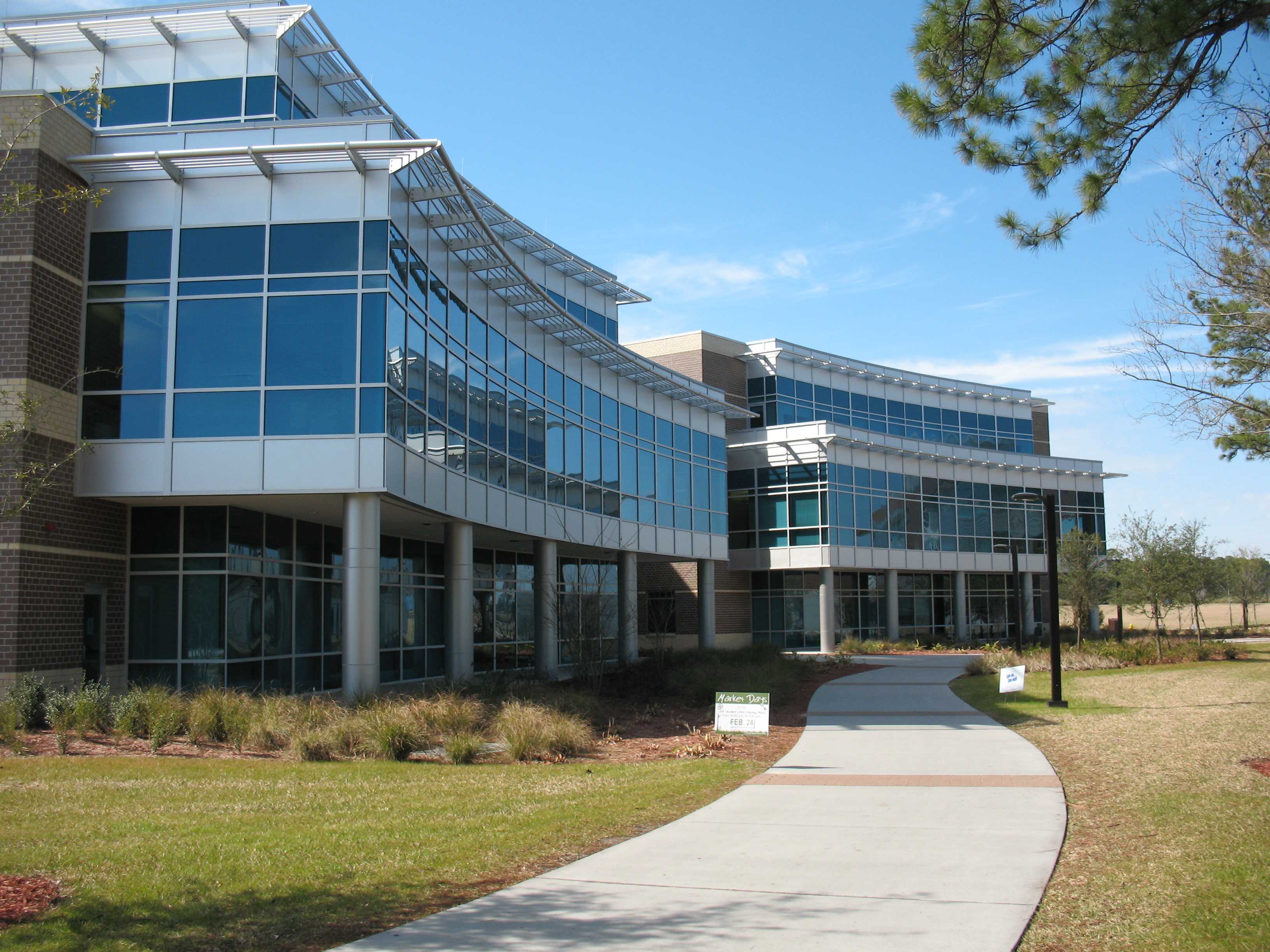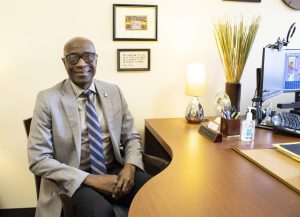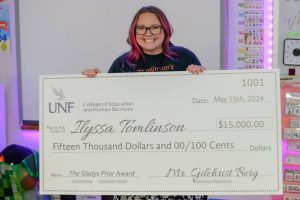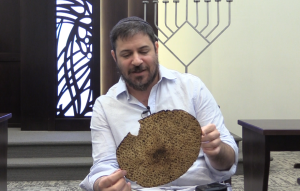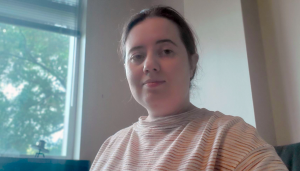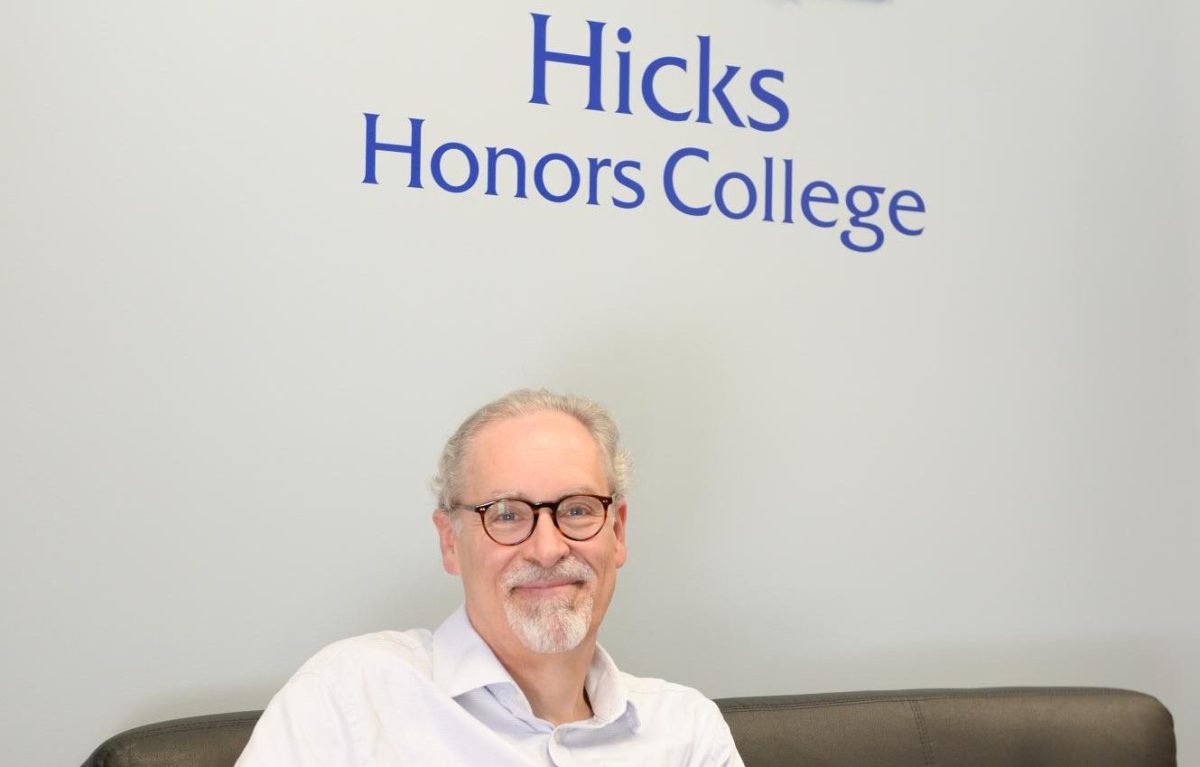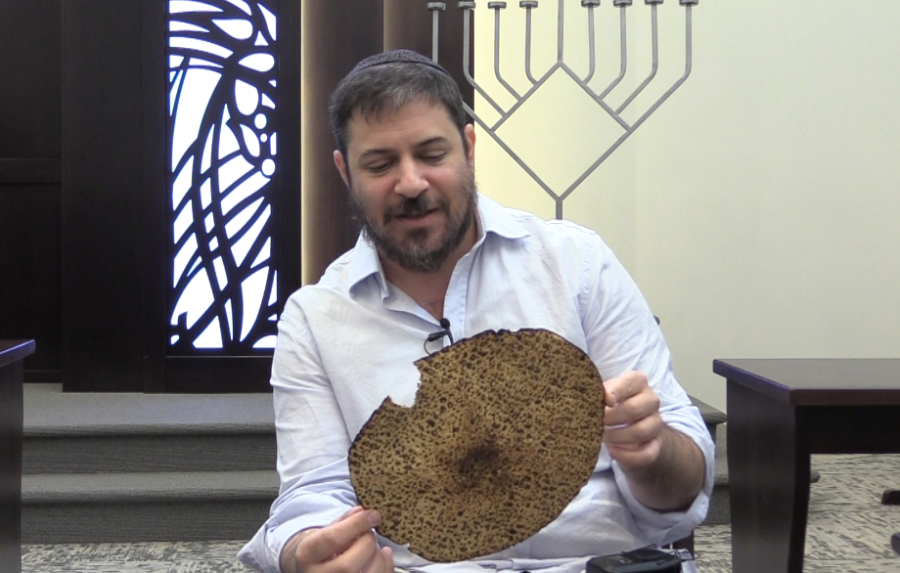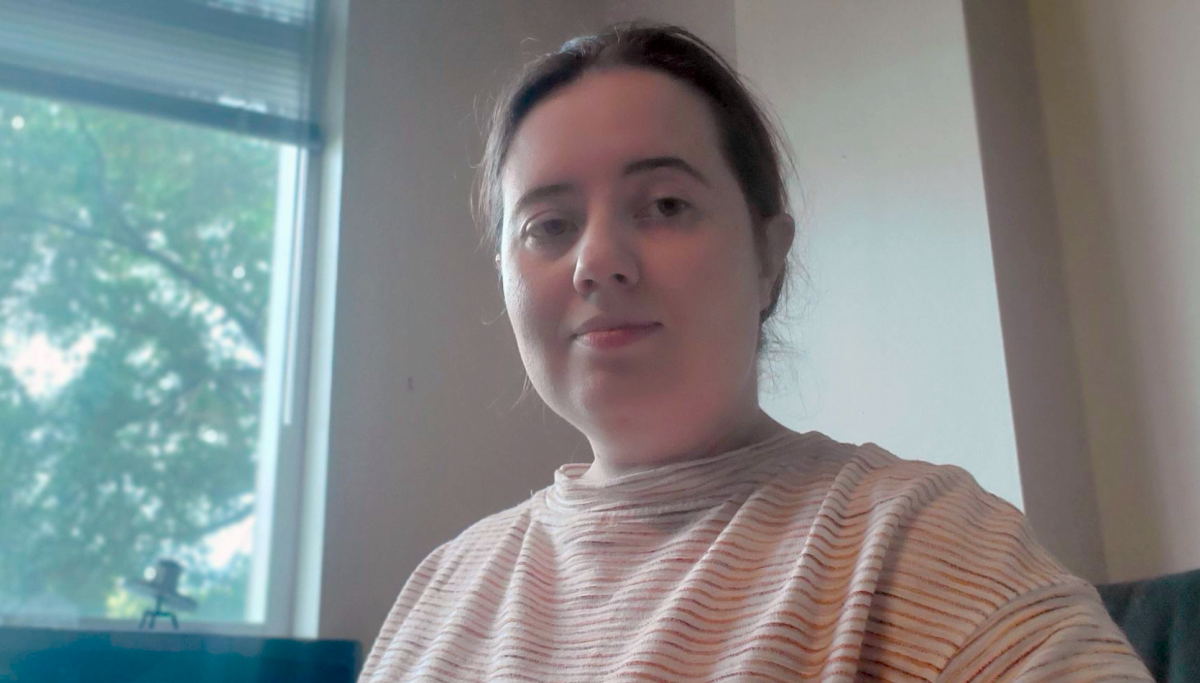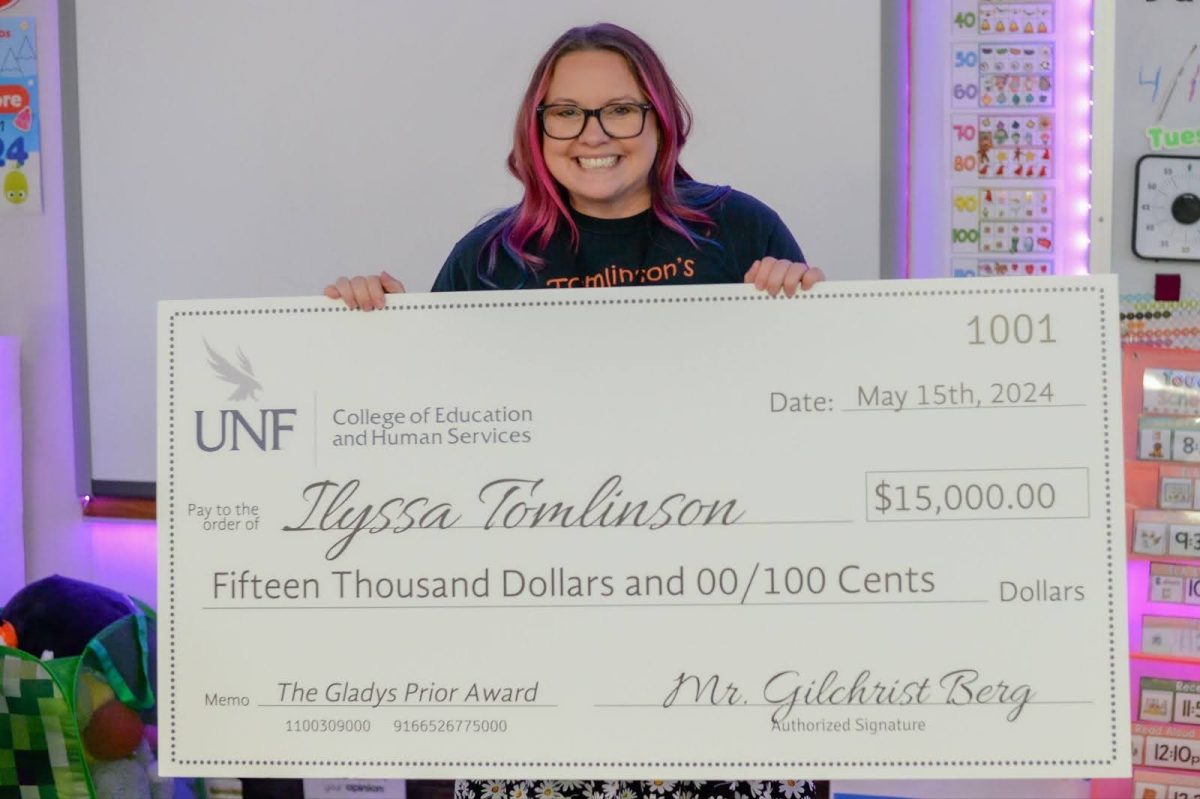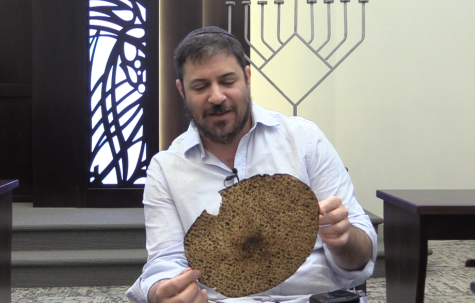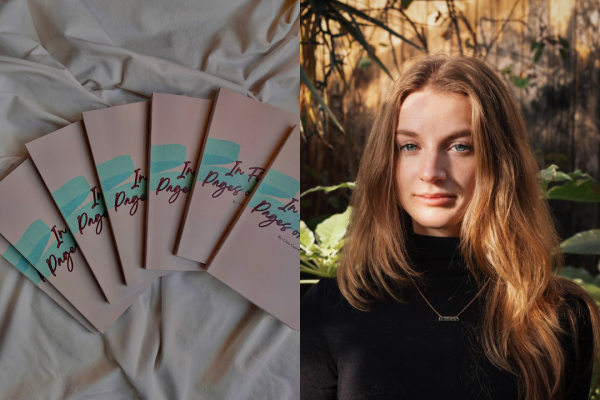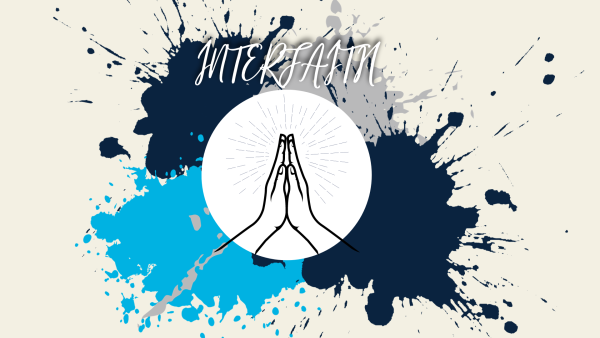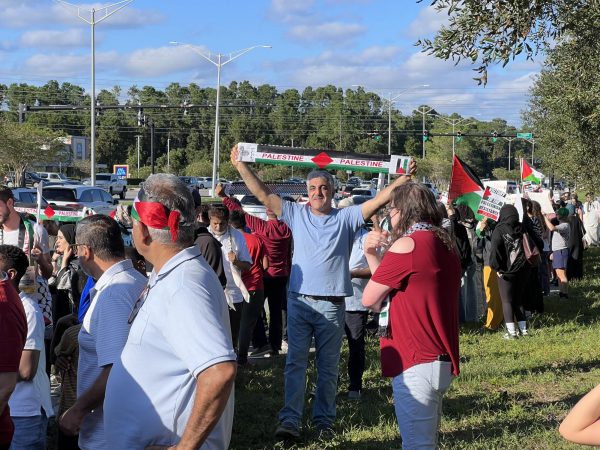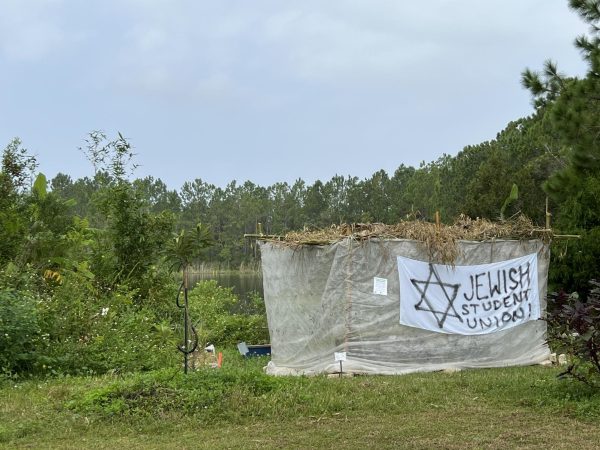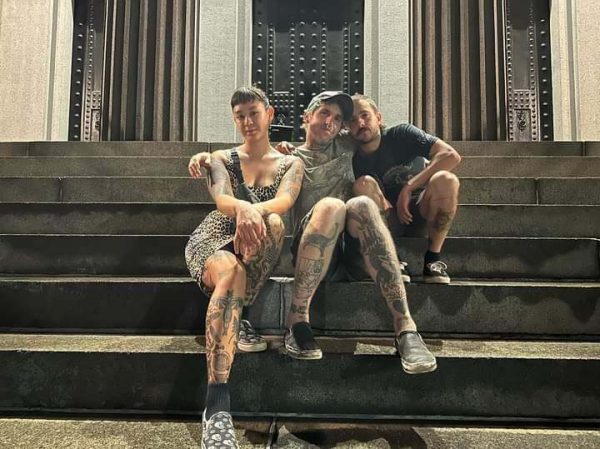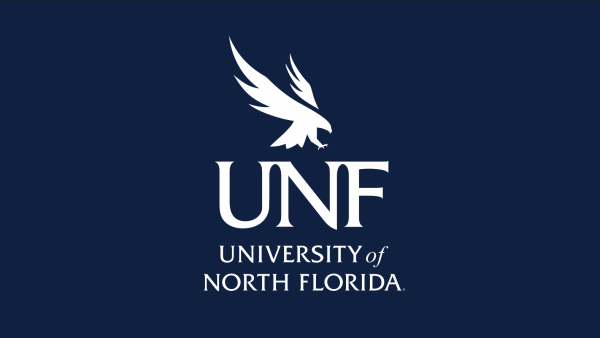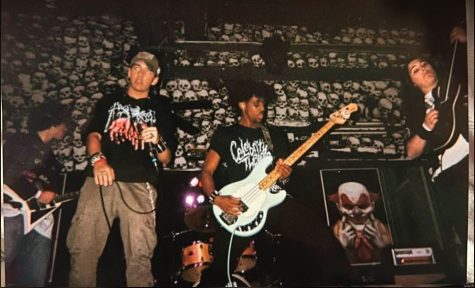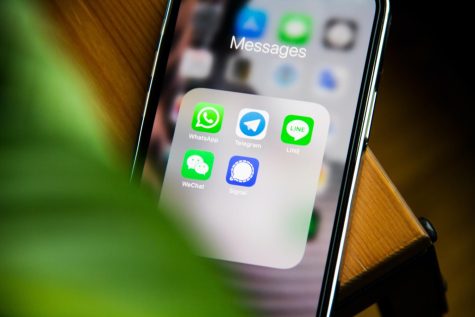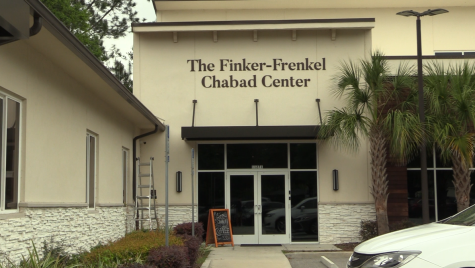‘Perseverance and solidarity’: UNF Pride Club members discuss the history of Pride
October 13, 2022
October is LGBTQ+ History Month, where the history of gay rights and other related civil rights movements are observed and honored. Spinnaker spoke with two members from the University of North Florida (UNF) LGBTQ Center about the Pride Club and the history of the LGBTQ community.
This interview has been edited for clarity. Watch the full podcast interview at the top of this article or by clicking here.
Can you first introduce yourselves?
Camaguey: I am Camaguey Horne. I am a fourth-year sociology major, so about to graduate. I am also the secretary of our LGBTQ Pride Club. We had our first meeting last night, [Sep. 6]. We had a lot of people come, it was really successful, and I’m really excited for our future. I’m from Miami, a nice five-hour drive from here.
Allison: My name is Allison Bradish. I am a junior and communication major concentrating on public relations and a minor in sociology, and I’m the Vice President of Pride Club. I’m from Palm Bay, Florida so just down south in Brevard County.
What does the LGBTQ Center here at UNF for and strive for as a group?
Allison: At the LGBTQ Center, we’re focused on creating a safe space for not only students but the Jacksonville community in general, but obviously especially UNF students. It’s about having a safe, loving and accepting space. You can do your homework there and find resources, we can direct you toward finding counseling resources, hormone replacement resources, and everything like that. It’s just a safe space to be.
What does the word ‘Pride’ mean to you?
Camaguey: This is the point of the interview where I get very honest. It’s a very terrifying time to be an LGBTQ person now and has been for decades. We are living in a time where our rights are being threatened and violated on multiple fronts. So, to me, to have pride is to take a stance against hate, both hate directed at yourself and directed at others.
What’s a word you would use to substitute pride?
Camaguey: Perseverance, but also solidarity is another word that comes to mind. Solidarity meaning, to support each other, especially in times of struggle and hardship. We cannot fight hate alone, we have to stand with each other, no matter what.
Allison: There is power in numbers. I feel like it’s more about having love for yourself and realizing that you’re just as valid as anybody else. You’re allowed to appreciate every part of you, just like anybody else would.
What has been your opinion and perception on the recent Florida bill passed that people are calling the “Don’t Say Gay” bill? How has it impacted you and others around you?
Camaguey: I genuinely believe this bill, in addition to others, reflects a widespread dissent of our country to hateful authoritarianism and LGBTQ people are the scapegoat that these authoritarians will use, as they historically have, to bring those horrible ideas into reality.
I’m not just talking about hypothetical dictatorships, here. The spread of hate against LGBTQ people has emboldened hate groups to commit horrible crimes against us, up to even calling for mass imprisonment or even execution of our people.
Camaguey: However, as history has also shown us, LGBTQ folk are proud and strong people, so we are not going to take this sitting down. We are going to go out there and vote and defend ourselves and our rights and I truly do believe we are going to get through this in one piece together.
Allison: It’s not even just trying to silence the queer people that are here now, it’s also disrespecting previous generations and everything they have worked towards to get everybody to where they are now, with equality, acceptance and more equal rights.
It’s just so disrespectful and I feel like no one should be concerned about who loves who, or who identifies as who. I don’t know how many times people can say that it’s not a choice. Writing this stuff into legislation gives the state and people who have hate in their hearts, more grounds to justify their beliefs and actions.
It affects everybody because it hurts to know people feel this way and just puts LGBTQ people in danger.
Camaguey: In terms of the education level, I am related to a teacher, and he says that everyone at his school is very upset with this bill, and they are doing everything they can to peacefully resist it. I think their contributions are also very important.
It is super alienating, and we fear this could have severe mental health effects on students.
What is the importance of having an LGBTQ at schools to help students feel accepted?
Camaguey: We are very lucky and grateful to have an LGBTQ Center here on campus. The center has given me a safe space where I can go without feeling judged or threatened by others. It has also provided a community; almost everyone I know I met through the LGBTQ Center so it’s nice to have a place where people like me can congregate and talk to each other.
Allison: I know I’m biased, but I truly feel like you’ll never find anything as special as an LGBTQ Center or club because there is so much love in that space. It’s so important to have that so people physically see that a presence that involves them can exist on campus because they need to know they have a voice.
What does it mean to celebrate and honor the people and events that have shaped the LGBTQ community throughout history?
Camaguey: History is a great way to learn that things are not hopeless. We have in the past, shown great resistance to the horrors we have faced, and we can learn that we are not alone, we have support and there is light at the end of the tunnel.
Which historical figure or event has made a significant impact on the development of the LGBTQ community?
Camaguey: While I would love to fill up our time singing the praises of Marsha Johnson and Harvey Milk, I also think it’s important to recognize the history of the LGBTQ community as a community and group.
In history, we are commonly taught to believe things happen through great figures like Johnson. However, the contributions of large groups are very important to our history, and we should take more time to recognize that.
Allison: Historical figures like Johnson are definitely credited for a lot, but that’s not to say that their contributions did not have an impact. For example, Johnson is credited [in history] with being the first person to throw the first brick at the Stonewall Riots in New York, but we’re not even sure if that’s actually true. So, although she has still helped pave the way, it’s in the community and groups of people who have come together over time, not just one individual.
Is there anything else you would like to mention or discuss?
Allison: There has been a lot going on out on the Green with very right-wing and religious extremists. They like to say and do things to evoke emotion in people, and not typically good emotions. I feel like it’s really important to acknowledge their presence on campus right now.
Camaguey: As students, you have rights. You have a lot of rights that many people don’t, so take advantage of them.
Allison: There’s a lot of power in recognizing what’s going around here and choosing to peacefully and rightfully do something about it, or at least say something about how you’re feeling.
How can UNF students get involved with the LGBTQ Center or learn more information about it?
Allison: The LGBTQ Center is open to the public and is in the Student Union East Wing, Room 1111. We have a website and are on social media, if you just look up UNF LGBT, you’ll find us on Instagram, Twitter and Facebook. We have a newsletter people can sign up for through our website so they can get email alerts about events and everything.
___
For more information or news tips, or if you see an error in this story or have any compliments or concerns, contact [email protected].


